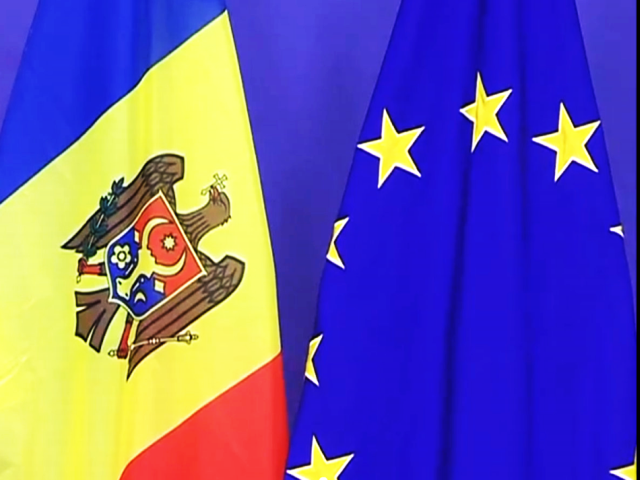The EU-Moldova Free Trade Agreement
Three years have passed since Moldova signed its Association Agreement with the European Union

Corina Cristea, 17.11.2017, 13:43
On November 13, 2014, the European Parliament voted in favor of the Association Agreement between the Republic of Moldova and the EU, an international treaty that regulates cooperation in trade, security and culture, bringing the two entities closer together. The Association Agreement includes a free trade agreement that opens up better commercial exchanges between the former Soviet state and the Union. This grants each party better access to the others market, eliminating tariffs. As Brussels does in cases when it establishes freeports, areas with preferential commerce treatment, Moldova has been marked as a country with which the treaty covers areas beyond trade, starting from the idea that this cannot be separated from domestic policies such as public acquisition, competition, intellectual property, or sustainability. In the case of the Republic of Moldova, its Eastern Partnership member status grants the country a special relationship with Brussels. All this was done in order to modernize the economy, attract community investments in the country, and create a more predictable policy environment.
The free trade agreement with the European Union offers a number of advantages to the Republic of Moldova, but, as European Commissioner for Trade, Cecilia Malmstrom, pointed out in Chisinau, there is unused potential. The recent visit came as the government of the Republic of Moldova argued in favor of implementing the free trade agreement, while pro-Moscow president Igor Dodon wants it reviewed. According to a joint press conference with Prime Minister Pavel Filip, the European official also spoke of the negotiation of the possibility to export to the EU animal products of Moldovan origin. According to Cecilia Malmstrom, in addition to the technical conditions it has to meet, such as food safety norms, what is needed is also predictable and transparent legislation, offering investors safety. Moldovan exports to the European market are on the rise, but at present what is on the table is the possibility of providing the EU market with meat and eggs, said Pavel Filip:
“I am talking first and foremost about the possibility of exporting animal-origin products. Of course, to this end we have a lot to do, but the prospects are very clear for us.”
According to analyst Vlad Turcanu, trade with the EU helped Moldova stay afloat after the repeated shocks that the economy endured in the last 20 years. At the same time, he criticized the ideas circulated by President Igor Dodon, who wants Moldova to export raw materials to the Russian Federation. According to Vlad Turcanu, the idea put forward by the pro-Russian leader would put domestic producers at a disadvantage:
“What I retained from this phrasing that Igor Dodon put forward, which he throws at the press on every occasion, is that we should focus on the relationship with the Russian Federation in order to export vegetables, fruits and wine to the Russian Federation. This is precisely the model that functioned in the case of the Moldovan Soviet Republic, before 1991. This means supplying the Russian Federation with raw materials, while the margin of profit for our suppliers would stand below one percent.”
In this equation, a special variable appears, the region of Transdniestr, a pro-Russian separatist region in the east of the Republic of Moldova. After the Association Agreement was signed in November 2013 in Vilnius, Transdniestr was granted separate trade incentives by the EU. In two years, almost 50 percent of exports from east of the Dniestr went to the EU. Trade incentives, however, expired at the end of 2015, and the special free trade area expanded, starting 1 January 2016, to the entire territory of the Republic of Moldova, including Transdniestr. All businesses in the Republic of Moldova, including Transdniestr, were able to export to the EU based on a single system of free trade.
However, the regime ruling Transdniestr, based in Tiraspol, announced it would not implement the free trade agreement with the EU, because it would clash with its foreign policy, solidified by a referendum on rapprochement with Russia, by way of integration in the Eurasian Union. Transdniestr obtained an asymmetric regime, one in which Tiraspol applies tariffs, while its exports go into the EU tariff free. Including Transdniestr even in this formula was seen by some analysts as aiming for a higher purpose, reuniting the country, based on the idea that a better economic relationship between the EU and the Republic of Moldova would go towards solving the Transdniestr conflict. (Translated by C. Cotoiu)






























